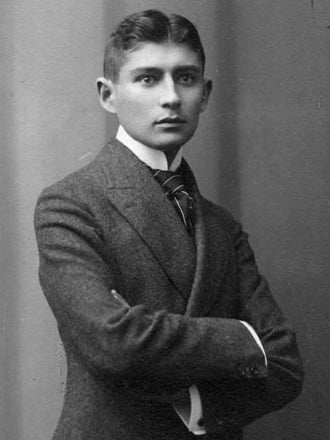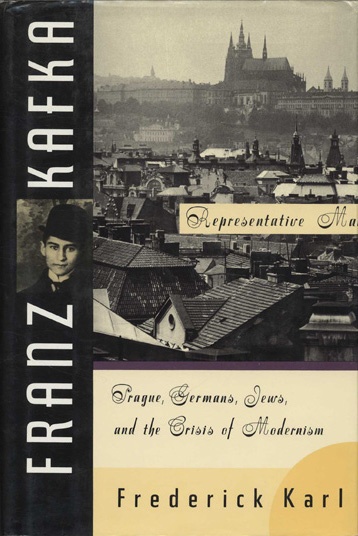Even today, Franz Kafka remains one of the most celebrated practitioners of absurdism that the world of letters has ever known. Born to an Austrian Jewish family around the turn of the 20th Century, Kafka spent most of his life working in obscurity, paying the bills with an insurance job that he reportedly loathed, only to gain a huge audience after his death on the strength of such classics as The Trial (1925) and The Metamorphosis (1915). Here are some interesting facts about him.
 1. He Wanted His Papers Burned
1. He Wanted His Papers Burned
In the style of many an enigmatic literary figure (like Emily Dickinson), Kafka requested that upon his death his unpublished writings be burned unread. Luckily for us, his executor and close friend Max Brod ignored his request, giving the world The Trial and other Kafka classics in the process.
2. Gregor Samsa Was Transformed into a Winged Beetle
The famous opening line to Kafka’s The Metamorphosis (“One morning, when Gregor Samsa woke from troubled dreams, he found himself transformed in his bed into a horrible vermin.”) is rendered so as to be intentionally ambiguous on the count of just what, exactly, Gregor Samsa had become. Through the history of its translation, it has sometimes been rendered as a dung-beetle, a beetle, or, as above, simply a vermin. But Kafka aficionado and famed lepidopterist Vladimir Nabokov apparently knew better, asserting in a famous lecture that, physiologically, Samsa could not have been a dung beetle, and in fact must have had small hidden wings (though Samsa never discovers their existence).
3. And the Floor Plan of Gregor Samsa's Apartment Was the Same as Kafka's
Though recent biographers have sought to downplay the commonly held idea that Kafka himself was very much a Gregor Samsa-like character, the young-man-turned-insect of literary fame did live in an apartment that was identical in layout to Kafka’s own.
4. He Cheated on His High School Exams
Though Kafka famously couldn’t lie, cheating apparently relied on a different skill set. Along with a group of other students, Kafka was involved in bribing his Greek professor’s house keeper into stealing a copy of the test from his desk. The whole group obviously passed with flying colors (with some of the weaker students making intentional mistakes to keep up the ruse), and their teacher was awarded a commendation as a result.
5. He Thought That He and Max Brod Would Strike It Rich Writing Travel Guides
Since his insurance job was taken just to pay the bills, it shouldn’t be surprising that Kafka fantasized about ways to become wealthy enough to write full time. What may be surprising is that his best idea on that front was the proposed writing of a guide book for people who want to travel through Europe cheaply.
 6. He Was Afraid of Mice
6. He Was Afraid of Mice
The writer who gave us some of literature’s most unsettling images, a man transformed into a giant bug not least among them, was absolutely terrified by mice. Though he recognized his fears as irrational, that didn't stop him from worrying about mice taking over his apartment.
7. He Might Have Invented the First Civilian Hard Hat
But he probably didn’t. Still, Kafka is sometimes cited as having invented the first civilian hard hat while working as an insurance officer. While proof of this innovation is scarce, it would be a delightfully strange footnote to his legacy.
8. He Wasn't the Only Franz Kafka
Some biographers have made much of the eerie coincidences that sometimes seemed to define Kafka’s life. Among them is the fact that when he moved to Berlin, another Franz Kafka did so as well at the exact same time. More than that, he once dated a woman who rented an apartment from another Franz Kafka.
9. He Was a Fletcherist
In the early 20th century, "economic nutritionist" Horace Fletcher started a remarkably widespread fad that involved chewing one's mouthfuls of food hundreds of times until it was entirely liquified. Fletcher erroneously believed that more nutritional content could be gotten this way and so successfully popularized the belief that it was taken up by Sir Arthur Conan Doyle, Henry James (who found eating to be repulsive and whose heart was so weakened by the resultant malnutrition as to facilitate his premature death), and, yes, Franz Kafka.









